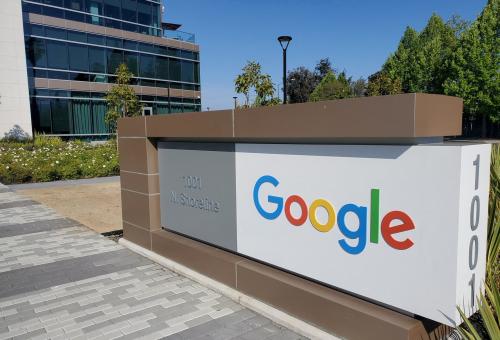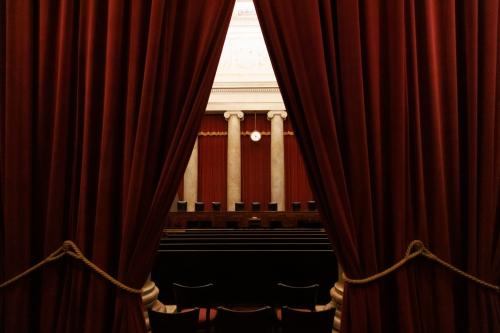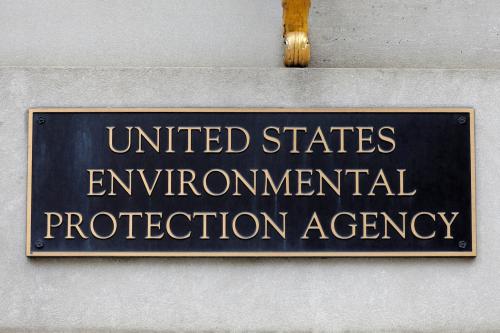Does a search warrant ordering Google to give law enforcement information regarding internet searches containing specific keywords made during a particular window of time violate the Fourth Amendment? This question was before the Colorado Supreme Court in 2023 and is now before the Pennsylvania Supreme Court.
Search warrants require probable cause and particularity
The Fourth Amendment protects against unreasonable searches and seizures by the government. The government generally needs a warrant to perform a search that infringes a reasonable expectation of privacy.
As the Supreme Court explained in a 1981 decision, the Fourth Amendment was “intended partly to protect against the abuses of the general warrants that had occurred” under English rule prior to 1776. A general warrant “specified only an offense—typically seditious libel—and left to the discretion of the executing officials the decision as to which persons should be arrested and which places should be searched.”
To guard against this sort of misuse of government investigative power, the Fourth Amendment provides that search warrants can only be issued “upon probable cause” and that they must describe with particularity “the place to be searched, and the persons or things to be seized.” Probable cause and particularity in light of 21st century investigative technologies, such as keyword searches, raise novel and important questions that courts have only recently begun to consider.
The Colorado Supreme Court case
The Colorado case, Colorado v. Seymour, arose from an investigation of a 2020 arson in which five people were killed. Police in Denver obtained a warrant requiring Google to provide the internet protocol (IP) addresses for devices, as well as a Google-assigned device identifier, for any Google accounts used to conduct searches for the home’s address in the 15 days preceding the fire.
Given an IP address, it is often (though not always) straightforward to identify the specific electronic device involved and subsequently the person who was using that device. Using the information obtained pursuant to the warrant, police identified and charged a suspect with crimes including murder, arson, and burglary.
In an October 2023 ruling, the Colorado Supreme Court cast doubt on whether the Colorado suspect had a reasonable expectation of privacy under the Fourth Amendment for internet searches. However, the court found that the suspect had “a reasonable expectation of privacy in his Google search history under article II, section 7 of the Colorado Constitution.” While that portion of the Colorado Constitution has text very similar to the Fourth Amendment, the court cited Colorado case law stating that “we are not bound by the United States Supreme Court’s interpretation of the Fourth Amendment when determining the scope of state constitutional protections.”
Given that the search implicated a reasonable expectation of privacy, the next question is whether the warrant met the particularity and probable cause requirements of the Fourth Amendment. With respect to particularity, the court “conclude[d] that the warrant at issue adequately particularized the place to be searched and the things to be seized.”
The court sidestepped the question of probable cause, writing that “because resolution of this issue doesn’t affect the outcome, we simply assume without deciding that the warrant lacked probable cause” and was thus “constitutionally defective.”
Often, the “exclusionary rule” blocks federal and state prosecutors from using evidence collected in a manner that violates the Fourth Amendment. But there is an exception: If a court finds that law enforcement acted in “good faith,” the evidence can be presented at trial despite the constitutional violation. Invoking this good faith exception, the Colorado Supreme Court declined to suppress the evidence obtained using the keyword search warrant, concluding that “law enforcement obtained and executed the warrant in good faith.”
The Pennsylvania Supreme Court case
In the Pennsylvania case, Commonwealth v. Kurtz, investigators pursuing a rape investigation used a keyword search warrant to requiring Google to identify Google searches of the address of the crime scene in the hours preceding the crime. In response, Google provided an IP address from which a Google search of the address had been conducted in the relevant time frame. This information was among the evidence used to identify and then to convict the suspect in an October 2020 trial. The suspect then appealed to the Superior Court of Pennsylvania.
In April 2023 the appeals court considered and rejected the suspect’s assertion that he had a reasonable expectation of privacy in his internet search history:
“We conclude that Appellant lacked a reasonable expectation of privacy concerning his Google searches of [the crime scene] address and his IP address. By typing in his search query into the search engine and pressing enter, Appellant affirmatively turned over the contents of his search to Google, a third party, and voluntarily relinquished his privacy interest in the search.”
The appeals court then turned to probable cause, writing that “even if Appellant did have a constitutionally cognizable privacy interest in his searches of [the] address, we would also find that the Google warrant was supported by probable cause.” The appeals court did not address the question of particularity.
The suspect then appealed to the Pennsylvania Supreme Court, which in October 2023 agreed to consider 1) whether there is a reasonable expectation of privacy in internet search queries and the IP address from which those queries are sent, and 2) whether the search warrant met the probable cause requirement. Notably, the “good faith” exception applied in the Colorado case is not recognized in Pennsylvania state courts in relation to protections in the state constitution from government searches. Thus, if the Pennsylvania Supreme Court determines that the warrant was unconstitutional due to lack of probable cause, the associated evidence will be suppressed.
Keyword search warrants and general warrants
While Colorado and Pennsylvania appear to be the first states where the state’s highest court is considering the constitutionality of keyword search warrants, the power of this investigative technique guarantees that this issue will reach other state supreme courts as well. In addition, it will increasingly arise in federal courts.
At root is the question of whether keyword search warrants are general warrants, and thus by definition unconstitutional. In an amicus brief filed in January with the Pennsylvania Supreme Court, the Electronic Frontier Foundation argues that the answer is yes:
“A warrant purporting to authorize a reverse keyword search is a digital analog to a warrant that authorizes officers to search every house in an area of a town—simply on the chance that they might find written material connected to a crime. Like the general warrants and writs of assistance used in England and colonial America, this warrant’s lack of particularity and overbreadth invites the police to treat it as an excuse to conduct an unconstitutional general search.”
Government investigators using keyword search warrants will of course take a different view. They will argue, for instance, that the specific nature of the keywords in the warrant, plus the fact that it is limited to searches conducted in a limited window of time, means that it satisfies the particularity requirement. Of course, identifying the IP addresses that did conduct a Google search using specific keywords also requires determining that a vastly larger number of people did not conduct such a search. Investigators will have to explain why the process of making those negative determinations doesn’t render the warrant unconstitutional. Investigators will also argue that the likelihood that perpetrators performed an internet search of the crime scene is high enough to satisfy probable cause.
Eventually, the U.S. Supreme Court may hear a keyword search warrant case, and if so, the resulting ruling could provide important consistency and clarity. Until then, there will likely be a range of outcomes from the different courts that engage with this important set of constitutionality questions.
-
Acknowledgements and disclosures
Google is a general, unrestricted donor to the Brookings Institution. The findings, interpretations, and conclusions posted in this piece are solely those of the author and are not influenced by any donation.
The Brookings Institution is committed to quality, independence, and impact.
We are supported by a diverse array of funders. In line with our values and policies, each Brookings publication represents the sole views of its author(s).







Commentary
Keyword search warrants and the Fourth Amendment
February 22, 2024